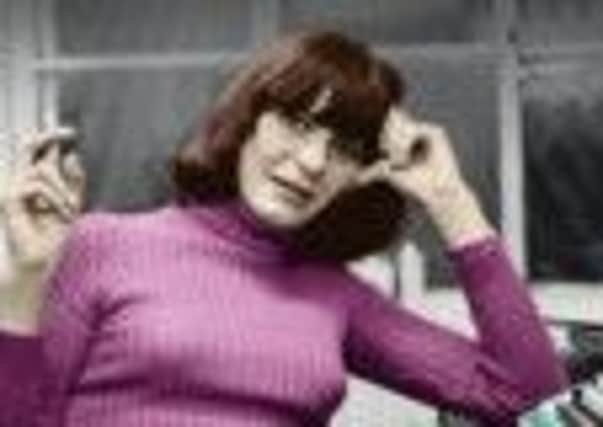Book review: A Curious Career by Lynn Barber


Lynn Barber has, since the 1980s, been Britain’s most accomplished interviewer of famous people, and is now, as a result, something of a celebrity herself. To become the subject of one of her articles is a badge of honour, proof that you have arrived on the national stage. That’s the upside. The downside, as some on the receiving end might regard it, is that Barber submits her interviewees to the sort of intimate analysis they would expect from their psychiatrist, but with none of the attendant confidentiality. As a result, her articles are full of insight and revelation. Her nickname, Demon Barber, suggests a hostility and aggression that is in the work only rarely. She prefers the scalpel, or, more accurately, the paring knife – taking the formless clay of the celebrity’s public image and uncovering, question by question, sentence by sentence, the true shape of their character.
Barber began her career at Penthouse in the late 1960s, once interviewing Salvador Dali over the course of four days in Paris, and, following a break to raise children, going on to write for the Observer and Independent On Sunday among others. She now works for the Sunday Times. She has published two previous collections of interviews – Mostly Men and Demon Barber. These demonstrate her fearlessness (“What people say is that you like little girls,” she put it to Jimmy Savile in a 1990 interview) and the elegance of her writing. Both points are important. The celebrity interview is, in the hands of many practitioners, an unlovely form; bland, sycophantic and written with all the wit and enthusiasm of a Wikipedia entry dictated at knifepoint. Barber, by contrast, has a lovely conversational, confiding, wry, urbane “voice” which those familiar with her work could identify without seeing a byline. She has, above all, courage in her questioning and energy in her writing – nerve and verve in perfect balance.
Advertisement
Hide AdIn 2003, she wrote An Education, an autobiographical essay published in Granta in which she revealed that at the age of 16 she had a relationship with a married conman in his late thirties. It was later made into a film of the same name, starring Carey Mulligan as the young Barber, earning three Oscar nominations. This conman – “Simon,” she calls him – makes a few appearances in A Curious Career, Barber’s memoir of her working life. Theirs was, she writes, “a paedophile relationship”, and he groomed her parents into trusting him with their daughter. The experience, she reflects, has made her sceptical, always alert to the possibility of lies, and keen to ask questions intended to establish the facts of personal lives. These are useful qualities in a professional journalist, but Barber realises she would be a nicer person if she was more trusting.
A Curious Career is a curious hybrid. In addition to the autobiographical material, Barber reproduces eight recentish interviews – Marianne Faithfull, Martin Clunes, Rafael Nadal, Christopher Hitchens, Shane MacGowan, Michael Winner, Hilary Mantel and Tracey Emin – and reflections on each. One might at first regard this as a bit of a cheat, a bulking out of a thin book, but in fact the articles are such a delight that it is hard to feel swindled. More, Barber’s personality and tastes are arguably more apparent when she writes about other people than when she discusses her own life.
The MacGowan interview, by the way, prompts a fabulous and oddly moving anecdote. During the course of a very drunken encounter with the Pogues legend, Barber promises him, with boozy solemnity, that should she ever be widowed then, yes, she would be glad to take him up on his offer that they should rob a bank together. When, two years later, her husband David dies unexpectedly, Barber finds herself “insane” with grief, and throughout this disorientating period one idea keeps her awake at night – that in order not to break her word, she must join MacGowan in a heist. In the end, only the thought that her beloved cats, Samson and Delilah, would have to be put down while she was in prison prevents her from journeying to Dublin and making herself available for crime.
A Curious Career would be enjoyed by anyone who has a sense of humour and an interest in fame, but journalists and journalism students should find this book useful treasure. Most reporters, working under ever-tighter PR and economic constraints, will gasp at the demands Barber makes and has granted by her editors – at least 90 minutes with her interviewees, two days to research, a week to write it up – but there is no point grudging someone with the talent to make the most of such liberty.
Barber turns 70 next week but has no plans to retire, delighted to go on quizzing your Lady Gagas and Pete Dohertys, and feeling only slightly “goatish” when asking such young celebrities about their sex lives. She has become, as she once wrote about Marianne Faithfull, A Fabulous Beast – prowling and growling her way through the media jungle, her silver mane wreathed in fag smoke, while the rest of us look on with awe and envy.
So, long may she continue to be curious, or simply “nosy” as she is happy to say, and long may she continue to prompt this question from readers: I wonder who Lynn Barber’s writing about next?
• ‘Daunderlust’ by Peter Ross has just been published by Sandstone Press, price £8.99